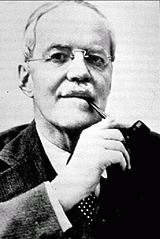In the U.S., however, the speech was largely ignored or greeted with skepticism.
Around this same time, Kennedy was contemplating a rapprochement with Castro in which he would acknowledge the revolution and Castro's government in exchange for a promise to not sponsor any more revolutions in the western hemisphere. Castro was prodded by Khrushchev to take the risk of trusting Kennedy enough to consider a dialogue with him. A back channel of communication was being established by November in the form of Norman Cousins who, during a days-long interview of Castro, discussed with him the possibilities of a negotiated peace with Kennedy on November 19, 1963. Castro's response, after a several minutes of reflection, was incisive and prescient in terms of truly understanding Kennedy's predicament:
I believe Kennedy is sincere. I also believe that today the expression of this sincerity could have political significance"I haven't forgotten that Kennedy centered his electoral campaign against Nixon on the theme of firmness toward Cuba. I have not forgotten the Machiavellian tactics and the equivocation, the attempts at invasion, the pressures, the blackmail, the organization of counterrevolution, the blockade and, above everything, all the retaliatory measures which were imposed before, long before there was the pretext and alibi of Communism. But I feel that he inherited a difficult situation; I don't think a President of the United States is ever really free, and I believe Kennedy is at present feeling the impact of this lack of freedom. I also believe he now understands the extent to which he has been misled, especially, for example, on Cuban reaction at the time of the attempted Bay of Pigs invasion.
Another peace emissary, Jean Daniel, was present a few days later when a stunned Castro received the news of Kennedy's assassination and lamented: "Everything is changed. Everything is going to change."
Vietnam
Kennedy's reluctance with respect to military engagement in Vietnam and his eventual desire to get out was rooted in an anti-colonialist streak, but even more by a trip to Vietnam he took with his brother Robert in 1951, during which they spoke to Edmund Gullion, an official at the U.S. Consulate. Gullion told them: "In twenty years there will be no more colonies. We're going nowhere out here. The French have lost. If we come in here and do the same thing, we will lose, too, for the same reason. There's no will or support for this kind of war back in Paris. The homefront is lost. The same thing would happen to us." Kennedy never forgot Gullion's words, but he was in a conundrum as to how to prevent a deeper military engagement in light of his increasing understanding that such a view was further isolating him from the influential hardliners who wanted to escalate the Cold War at every opportunity, as well as a CIA that had no problem defying and undermining his orders, particularly after the Bay of Pigs incident in April of 1961 when the CIA realized they could not manipulate the president into an invasion of Cuba. As pressure was mounting on the issue, Kennedy's friend Larry Newman said he told him in October of 1963, "This war in Vietnam -- it's never off my mind, it haunts me day and night." By November, Kennedy told Malcom Kilduff that Vietnam was "not worth one more American life"After I come back from Texas, that's going to change." He said essentially the same thing to a few others, including Senator Mike Mansfield. He documented his decision with National Security Action Memorandum 263, which called for pulling out 1,000 American servicemen from Vietnam by the end of 1963 and all of them by the end of 1965.
Cold War Mythology and the CIA
The creation of our current national security apparatus, including the CIA, can be traced back to the National Security Act (NSA) signed by President Harry Truman in 1947 designed to "contain" the Soviet Union, which Truman and his staunchly anti-Communist advisors had decided was going to be the next enemy after WWII. Truman later lamented in a Washington Post piece after Kennedy's assassination that the CIA had essentially turned into an unaccountable Frankenstein that it was never meant to be, explaining that it was only intended to be a source of intelligence gathering to enable the president to make informed decisions, and it was not meant to conduct covert operations. Although this is somewhat disingenuous on Truman's part as his Secretary of State George Marshall had warned him at the time of the potential unaccountability and abuse of the agencies being created by this legislation, stating that it especially granted the CIA powers that were "almost unlimited." The particularly egregious sentence cited by most critics of the NSA of 1947 is one that allows a president to direct the CIA to "perform such other functions and duties related to intelligence affecting the national security"." (2)
Another point against Truman in the creation of the CIA Frankenstein and the Cold War mythology that allowed it to operate is that, as historian Peter Kuznick points out, had Truman not replaced Henry Wallace as FDR's vice president, there's a good chance there may not have been a Cold War as Truman, a political neophyte, overturned FDR's more balanced approach to his Allied partners and took a more bellicose stance against the Soviet Union. This likely could have been avoided if Truman had understood Soviet defense interests better or been willing to listen to advisors who did. The Soviets had been invaded twice in thirty years and saw the death of over 20 million of its citizens and the devastation of much of its county in beating back the Nazis. Both FDR and Wallace had a more nuanced understanding of the situation, but Truman refused to listen to Wallace's views and instead went along with the extreme anti-Communist ideology of some of his other advisors. (3)
Perhaps Truman realized some of his mistakes in hindsight.
In any event, by the time Kennedy took office, the Cold War mentality and the reach and unaccountability of the CIA had risen to ominous levels. It didn't take Kennedy long to realize what he was dealing with.
According to Arthur Schlesinger, Jr., during the Bay of Pigs fiasco, Kennedy told him: "It's a hell of a way to learn things, but I have learned one thing from this business -- that is, that we will have to deal with the CIA"no one has dealt with the CIA." He had also commented to others that he wanted to "splinter the CIA into a thousand pieces and scatter it to the winds." Consequently, Kennedy signed National Security Action Memorandums 55 and 57 stripping the CIA of authority to conduct military type operations and affirming that the Joint Chiefs of Staff were the president's principal military advisors during peace and wartime. He also forced director Allen Dulles, the deputy director and the deputy director general to resign.

File:Allen Dulles.jpg - Wikimedia Commons
(Image by (From Wikimedia) CIA photo, Author: CIA photo) Details Source DMCA
By this time, military leaders and national security advisors had acquired an extremely militant stance and pressured Kennedy to escalate the Cold War numerous times. These instances included a 1961 meeting in which the President walked out in disgust at suggestions of a nuclear first strike on the Soviet Union. During the Cuban Missile Crisis, transcripts reveal that he was constantly being pressured to bomb and invade Cuba with the potential catastrophic consequences dismissed. In 1962, the Joint Chiefs of Staff presented him with the Operation Northwoods plan, which included potential false flag operations by the CIA intended to whip the American public into a frenzy to invade Cuba. Calls for a nuclear first strike on the Soviets continued periodically, including one meeting where his advisors casually discussed the estimated deaths of 130 million Soviets and up to 30 million Americans from reprisals. Kennedy somehow withstood the pressure and nixed all of these nefarious plans.
One has to wonder where this destructive, almost theological, belief system that infected the minds of our government's military advisors and national security apparatus came from. After World War II, a pathological mythology emerged, perhaps from being drunk on our victory over Nazi Germany and Imperial Japan, that we were exceptional, that we were the white knights fighting to liberate the world from evil and the latest evil foe that must be vanquished regardless of the costs, was now Communism. Unfortunately, this mythology was facilitated by a post-WWII president who was seduced by extremist advisors and refused wiser counsel.
Next Page 1 | 2 | 3 | 4 | 5 | 6
(Note: You can view every article as one long page if you sign up as an Advocate Member, or higher).





